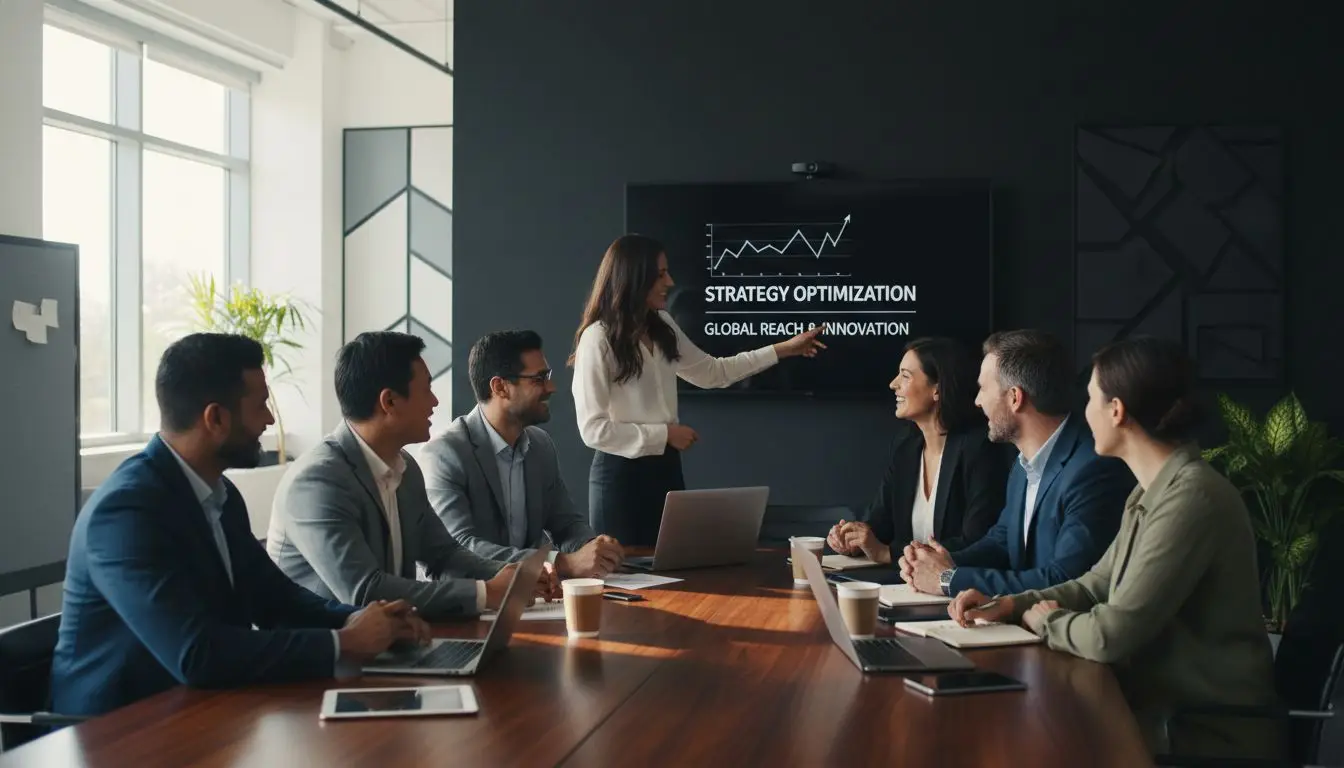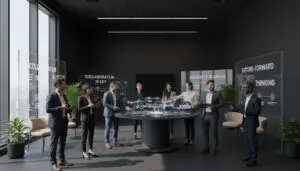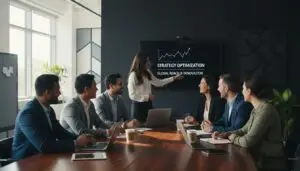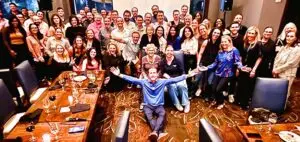Team building skills transform ordinary groups into high-performing teams that achieve remarkable results together. Whether you're planning your next corporate retreat in Orlando or looking to strengthen your team's dynamics, understanding these core competencies makes all the difference in creating meaningful connections and driving business outcomes.
What Are Team Building Skills? A Clear Definition
Team building skills are the specific interpersonal and organizational competencies that enable individuals to create, strengthen, and maintain effective working relationships within groups. Unlike team building activities—which are structured exercises or events—team building skills represent the underlying abilities that make those activities successful and translate into everyday workplace collaboration.
Think of it this way: attending a team building event is like going to the gym once. Team building skills are the actual fitness you develop through consistent practice. These skills include everything from how you communicate during conflicts to how you facilitate group discussions, build trust with colleagues, and navigate the complex dynamics of diverse teams.
The distinction matters because many organizations invest in team building activities without developing the fundamental skills that make teams function well long after the event ends. A company might host an elaborate escape room challenge or bring in interactive game show experiences for their annual meeting, but without cultivating the underlying competencies, the benefits remain temporary.
How Team Building Skills Differ from General Soft Skills
Team building skills overlap with soft skills but have a specific focus on group dynamics and collective success. While soft skills like time management or personal organization benefit individual performance, team building skills specifically enhance how people work together. Communication is a soft skill; facilitating productive group conversations where everyone feels heard is a team building skill. The difference lies in the intentional focus on collective outcomes rather than individual achievement.
The Core Team Building Skills That Matter Most

After producing over 3,000 corporate events since 2010 and watching countless teams interact, we've identified ten essential competencies that consistently separate high-performing teams from struggling ones. These skills work together, creating a foundation for effective collaboration regardless of industry or team size.
[INFOGRAPHIC: Visual hierarchy showing the 10 core team building skills organized by category – Communication, Collaboration, Emotional Intelligence, and Leadership]
1. Active Listening and Communication Skills
Active listening goes far beyond simply hearing words. It requires full attention, asking clarifying questions, and demonstrating understanding before responding. In team settings, this skill prevents the miscommunication that derails projects and damages relationships.
Strong communicators in team environments:
- Adjust their communication style based on their audience
- Provide context when sharing information
- Check for understanding rather than assuming it
- Share both successes and challenges transparently
- Give feedback that's specific, timely, and constructive
During our game show events at venues like the Rosen Shingle Creek in Orlando, we consistently observe that teams with strong communicators coordinate faster, make better strategic decisions, and recover from setbacks more effectively. They don't just talk more—they communicate with purpose and clarity.
2. Collaboration and Cooperation Skills
Collaboration means working together toward shared goals while respecting individual contributions and perspectives. It's the ability to balance personal ideas with group needs, compromise when necessary, and build on others' suggestions rather than competing with them.
Effective collaborators:
- Recognize when to lead and when to follow
- Share credit generously and take responsibility for mistakes
- Seek input from diverse perspectives before making decisions
- Find ways to integrate different viewpoints into stronger solutions
- Prioritize team success over individual recognition
The best collaborators understand that cooperation doesn't mean always agreeing. It means disagreeing productively, finding common ground, and moving forward together even when consensus isn't perfect.
3. Trust Building and Relationship Skills
Trust forms the foundation of every effective team. Without it, collaboration becomes transactional, communication stays surface-level, and innovation suffers because people won't take risks or share unconventional ideas.
Building trust requires:
- Consistency between words and actions over time
- Vulnerability in admitting mistakes and limitations
- Reliability in meeting commitments, even small ones
- Discretion with sensitive information
- Genuine interest in colleagues as people, not just workers
Trust develops slowly through repeated positive interactions. A single team building event won't create it, but the right activities can accelerate the process by creating shared experiences and revealing authentic personalities. We've seen teams transform during our corporate game show experiences when competitive pressure reveals character and collaborative moments build mutual respect.
4. Problem-Solving and Critical Thinking Skills
Teams face constant challenges—from resource constraints to conflicting priorities to unexpected obstacles. The ability to approach problems systematically as a group, analyze situations from multiple angles, and generate creative solutions separates functional teams from exceptional ones.
Strong team problem-solvers:
- Define problems clearly before jumping to solutions
- Gather relevant information from multiple sources
- Consider both short-term fixes and long-term implications
- Test assumptions rather than accepting them as facts
- Learn from failed attempts instead of repeating them
The most valuable problem-solving happens when teams combine diverse thinking styles. Analytical thinkers spot logical flaws, creative thinkers generate novel approaches, and practical thinkers identify implementation challenges. Teams that leverage these differences solve problems faster and more thoroughly.
5. Conflict Resolution and Mediation Skills
Conflict is inevitable when people with different backgrounds, priorities, and communication styles work together. The question isn't whether conflict will occur but how teams handle it when it does.
Effective conflict resolution involves:
- Addressing issues directly rather than avoiding them
- Focusing on interests and needs, not positions
- Separating people from problems
- Finding solutions that address underlying concerns
- Knowing when to involve neutral third parties
Teams with strong conflict resolution skills view disagreements as opportunities to understand different perspectives and reach better solutions. They create environments where people feel safe raising concerns before they escalate into major problems.
6. Emotional Intelligence and Empathy
Emotional intelligence—the ability to recognize, understand, and manage emotions in yourself and others—dramatically impacts team dynamics. Teams with high collective emotional intelligence navigate stress better, support each other through challenges, and maintain morale during difficult periods.
This skill includes:
- Reading nonverbal cues and emotional undercurrents
- Regulating your own emotional responses in tense situations
- Showing genuine empathy for colleagues' experiences
- Recognizing how emotions influence decision-making
- Creating psychological safety where people can be authentic
Empathy doesn't mean agreeing with everyone or avoiding difficult conversations. It means understanding others' perspectives well enough to communicate in ways they can hear, even when delivering challenging messages.
7. Adaptability and Flexibility
Change happens constantly in modern workplaces. Teams need members who can adjust plans when circumstances shift, embrace new approaches when old ones stop working, and maintain effectiveness despite uncertainty.
Adaptable team members:
- Stay open to different methods and perspectives
- Recover quickly from setbacks and disappointments
- Learn new skills as team needs evolve
- Help others navigate transitions
- Find opportunities in unexpected changes
During our events across Florida—from Tampa convention centers to Sarasota resorts—we've noticed that adaptable teams perform better when game rules change unexpectedly or technical issues arise. They pivot quickly, support each other through adjustments, and often have more fun because they're not rigidly attached to specific outcomes.
8. Leadership and Facilitation Skills
Leadership in team contexts isn't just for managers. Effective teams have members who can step into leadership roles when their expertise is most relevant, facilitate productive discussions, and guide groups toward decisions without dominating.
Strong team leaders:
- Create clarity around goals and expectations
- Delegate based on strengths and development needs
- Remove obstacles that prevent progress
- Recognize and celebrate contributions
- Model the behaviors they want to see
Facilitation skills—guiding group processes without controlling outcomes—are particularly valuable. Good facilitators help teams make better decisions by ensuring all voices are heard, keeping discussions focused, and managing group dynamics that might otherwise derail progress.
9. Accountability and Reliability
Accountability means taking ownership of your commitments and following through consistently. In team settings, this skill extends to holding others accountable respectfully and accepting responsibility for collective outcomes, not just individual tasks.
Reliable team members:
- Meet deadlines without constant reminders
- Communicate proactively when they can't deliver as promised
- Take responsibility for mistakes without making excuses
- Support teammates who are struggling
- Maintain consistent effort and quality
Teams with strong accountability don't need extensive oversight or micromanagement. They self-regulate, address performance issues directly, and maintain high standards because everyone understands their role in collective success.
10. Appreciation and Recognition Skills
The ability to genuinely recognize others' contributions strengthens team bonds and maintains motivation. This goes beyond generic praise to specific acknowledgment of how someone's work made a difference.
Effective recognition:
- Highlights specific actions and their impact
- Happens in real-time, not just during annual reviews
- Comes from peers, not just managers
- Celebrates effort and growth, not just outcomes
- Feels authentic and proportional to the contribution
Teams that regularly express appreciation create positive feedback loops. People feel valued, which increases engagement, which leads to better performance, which generates more reasons for appreciation. This cycle builds team morale and resilience during challenging periods.
How to Develop Team Building Skills Effectively

Unlike technical skills that you can learn through courses and certifications, team building skills develop primarily through practice, reflection, and feedback. Here's how to cultivate these competencies systematically.
Start with Self-Assessment
Before improving team building skills, you need honest awareness of your current abilities. Ask yourself:
- Which team situations make me uncomfortable or defensive?
- What feedback have I received repeatedly about my teamwork?
- When have I contributed to team dysfunction, even unintentionally?
- Which of the ten core skills feel most natural versus most challenging?
Consider using 360-degree feedback tools where colleagues, managers, and direct reports assess your team building competencies. The gaps between self-perception and others' experiences often reveal the most important development opportunities.
Practice in Low-Stakes Environments
Team building skills improve through repetition, but high-pressure work situations aren't ideal learning environments. Look for opportunities to practice in settings where mistakes have minimal consequences:
- Volunteer for cross-functional projects outside your core responsibilities
- Join professional associations or community organizations
- Participate in structured team building activities that create safe spaces for experimentation
- Take on facilitation roles in informal team meetings
Our interactive game show events create exactly these kinds of low-stakes practice environments. When teams compete using wireless buzzers at venues throughout Orlando, Tampa, and across Florida, they practice communication, collaboration, and conflict resolution in contexts where the only thing at risk is bragging rights. The skills they develop transfer directly to workplace challenges.
Seek Specific Feedback Regularly
General feedback like "you're a great team player" doesn't help you improve. Request specific observations about particular skills:
- "How effectively did I facilitate today's discussion?"
- "Did I listen well during our disagreement, or did I seem defensive?"
- "What could I have done differently to help the team reach a decision faster?"
Create feedback loops with trusted colleagues who will give you honest assessments. The discomfort of hearing critical feedback is temporary; the cost of repeating ineffective behaviors indefinitely is much higher.
Study Effective Team Builders
Identify people in your organization who excel at team building and observe them carefully. Notice:
- How they phrase questions to encourage participation
- When they speak up versus when they listen
- How they handle disagreements or tension
- What they do to make people feel valued
- How they balance task focus with relationship building
Don't just admire these skills—analyze the specific behaviors you can adapt to your own style. Team building excellence isn't about copying someone else's personality; it's about learning techniques that work and making them your own.
Invest in Structured Learning
While experience matters most, formal development accelerates growth:
- Take courses on facilitation, conflict resolution, or emotional intelligence
- Read research on team dynamics and group psychology
- Attend workshops that provide practice with expert feedback
- Work with coaches who can help you identify blind spots
The most effective learning combines theory with immediate application. Learn a concept, try it with your team, reflect on what happened, adjust your approach, and try again.
Create Deliberate Practice Routines
Athletes don't just play games; they practice specific skills repeatedly. Apply the same approach to team building:
- Before meetings, identify one skill to focus on (like asking better questions)
- After team interactions, spend five minutes reflecting on what worked and what didn't
- Set monthly goals for specific competencies you want to improve
- Track patterns in your team interactions to identify recurring challenges
This deliberate practice transforms random experiences into systematic skill development.
Team Building Skills for Different Roles
While everyone benefits from strong team building skills, different positions require different emphases and applications of these competencies.
Team Building Skills for Individual Contributors
Individual contributors need team building skills that help them collaborate effectively with peers, contribute to group success, and build positive working relationships across the organization.
Priority skills:
- Active listening to understand others' perspectives and needs
- Collaboration to work effectively on shared projects
- Adaptability to adjust to different team dynamics and working styles
- Reliability to build trust through consistent follow-through
- Appreciation to strengthen peer relationships
Individual contributors often underestimate their influence on team culture. Your willingness to help colleagues, share information generously, and maintain positive attitudes during challenges shapes team dynamics as much as any manager's directives.
Team Building Skills for Team Leaders and Managers
Managers need all the skills individual contributors do, plus additional competencies for creating environments where teams thrive.
Additional priority skills:
- Facilitation to guide productive discussions and decision-making
- Conflict resolution to address issues before they escalate
- Leadership to provide direction while empowering autonomy
- Emotional intelligence to recognize and respond to team dynamics
- Recognition to maintain motivation and engagement
Effective team leaders understand that their primary job isn't doing the work—it's creating conditions where others can do their best work. This requires shifting focus from individual achievement to collective success, from being the smartest person in the room to bringing out the best in everyone.
Team Building Skills for Remote and Hybrid Teams
Remote and hybrid work environments demand heightened attention to specific team building skills because casual relationship-building opportunities disappear.
Critical skills for distributed teams:
- Overcommunication to compensate for reduced informal interaction
- Intentional relationship building since it won't happen accidentally
- Written communication clarity when you can't rely on tone and body language
- Trust building despite limited face-to-face contact
- Inclusion to ensure remote workers don't become second-class team members
Remote teams benefit enormously from periodic in-person gatherings that accelerate relationship building. When Florida-based companies bring distributed teams together for events at locations like the Bonnet Creek Resort or Naples convention centers, combining business meetings with engaging team building experiences creates connections that sustain collaboration during months of virtual work.
Team Building Skills for Cross-Functional Teams
Cross-functional teams bring together people from different departments with different priorities, vocabularies, and working styles. These teams need enhanced skills for bridging differences.
Essential skills:
- Translation to help people from different functions understand each other
- Perspective-taking to appreciate different departmental priorities
- Conflict resolution to navigate competing interests productively
- Facilitation to ensure all functional areas contribute equally
- Integration to synthesize diverse viewpoints into coherent solutions
The most successful cross-functional teams explicitly discuss how different departments approach problems and make decisions. This meta-conversation about working styles prevents misunderstandings that might otherwise feel like personality conflicts.
Measuring and Assessing Team Building Skills

What gets measured gets improved. Assessing team building skills helps individuals target development efforts and helps organizations identify where to invest in team development.
Individual Assessment Methods
Self-Assessment Tools: Structured questionnaires help you evaluate your own competencies across the core team building skills. While self-assessments have limitations—we're often blind to our weaknesses—they provide a starting point for development conversations.
360-Degree Feedback: Gathering input from managers, peers, and direct reports provides a more complete picture of your team building effectiveness. The most valuable insights often come from gaps between how you see yourself and how others experience you.
Behavioral Interviews: Asking specific questions about past team situations reveals actual behaviors rather than aspirational self-descriptions. Questions like "Tell me about a time you had to build trust with a skeptical colleague" or "Describe a situation where you helped resolve a team conflict" uncover real competencies.
Observation and Shadowing: Having someone observe you in actual team settings and provide feedback on specific behaviors offers concrete improvement opportunities. This works particularly well for skills like facilitation and conflict resolution.
Team-Level Assessment Methods
Team Effectiveness Surveys: Regular surveys measuring collaboration quality, communication effectiveness, trust levels, and conflict resolution help teams identify collective strengths and weaknesses.
Performance Metrics: Track team outcomes like project completion rates, quality metrics, innovation measures, and employee retention. While these don't directly measure team building skills, they reflect the results of strong or weak team dynamics.
Meeting Analysis: Evaluate team meetings for participation balance, decision-making quality, conflict handling, and time efficiency. Meetings reveal team building skills in action.
Peer Feedback Sessions: Structured sessions where team members share appreciations and constructive feedback help teams understand their collective dynamics and identify improvement opportunities.
[INFOGRAPHIC: Framework showing how to assess team building skill proficiency levels from beginner to expert across the 10 core competencies]
Creating Development Plans Based on Assessment
Once you've assessed current skill levels, create targeted development plans:
- Prioritize: Focus on 2-3 skills that will have the biggest impact, not all ten simultaneously
- Set specific goals: "Improve communication" is too vague; "Ask at least two clarifying questions before responding in team discussions" is actionable
- Identify practice opportunities: Where will you deliberately practice these skills?
- Schedule check-ins: Review progress monthly and adjust your approach based on what's working
- Celebrate progress: Acknowledge improvements, even small ones, to maintain motivation
Development plans work best when they're collaborative. Share your goals with your team or manager so they can provide feedback and support your growth.
Common Mistakes That Undermine Team Building Skills
Even well-intentioned people make predictable mistakes that damage team dynamics. Avoiding these pitfalls accelerates your development.
Confusing Activities with Skills
Attending team building events doesn't automatically develop team building skills any more than watching cooking shows makes you a chef. The activities create opportunities to practice skills, but you need intentional reflection and application to translate experiences into lasting competencies.
After participating in team building activities—whether it's a game show event, escape room, or volunteer project—ask yourself: What did I learn about how our team works together? What behaviors helped or hindered our success? How can I apply these insights to our daily work?
Avoiding Difficult Conversations
Many people mistake harmony for team health. They avoid addressing conflicts, giving critical feedback, or raising concerns because they don't want to create tension. This approach allows small issues to become major problems and prevents teams from reaching their potential.
Strong team building skills include the courage to have uncomfortable conversations respectfully. Teams that address issues directly and work through disagreements productively are healthier than teams that suppress conflict in the name of politeness.
Prioritizing Task Over Relationship
In deadline-driven environments, it's tempting to focus exclusively on tasks and treat relationship building as a luxury. This creates a vicious cycle: weak relationships lead to poor collaboration, which creates more pressure, which leads to even less attention to relationships.
The most effective teams understand that relationship building isn't separate from productivity—it's the foundation that makes productivity possible. Investing time in understanding colleagues, building trust, and strengthening connections pays dividends in faster decision-making, better problem-solving, and higher engagement.
Assuming Everyone Works Like You
We naturally assume others think, communicate, and work the way we do. This assumption causes countless team problems. What feels like clear communication to you might be overwhelming detail to someone else. Your preferred decision-making process might frustrate teammates who approach choices differently.
Strong team building skills require recognizing and adapting to different working styles, communication preferences, and thinking patterns. Flexibility and curiosity about differences matter more than finding the "right" way to work.
Bringing Team Building Skills to Life
Team building skills transform from abstract concepts to practical competencies when you see them in action. Here's what these skills look like in real workplace scenarios.
Imagine a product launch team facing a major setback three weeks before their deadline. A key vendor has failed to deliver, and the team needs to find an alternative solution quickly.
A team with weak team building skills might:
- Blame the person who selected the vendor
- Have side conversations instead of addressing the problem directly
- Let the loudest voices dominate the discussion
- Make a hasty decision without considering all options
- Leave the meeting with unclear responsibilities
A team with strong team building skills would:
- Acknowledge the problem without assigning blame
- Facilitate a structured discussion where everyone contributes ideas
- Listen actively to understand different perspectives on solutions
- Resolve disagreements by focusing on shared goals
- Make a clear decision with defined next steps and accountability
- Support each other through the stressful implementation
The difference isn't intelligence or technical expertise—it's the team building skills that enable effective collaboration under pressure.
[VIDEO: Real examples of team building skills in action during corporate game show events, showing communication, collaboration, and problem-solving]
Taking Your Team Building Skills to the Next Level
Developing strong team building skills is a career-long journey, not a destination. The competencies that make you an effective team member today will need refinement as you take on new roles, work with different teams, and face evolving workplace challenges.
The most successful professionals treat team building skills with the same seriousness they apply to technical expertise. They seek feedback regularly, practice deliberately, learn from both successes and failures, and continuously refine their approach based on what works.
Whether you're an individual contributor looking to collaborate more effectively, a manager building a high-performing team, or an HR leader developing organizational capabilities, investing in team building skills delivers returns that compound over time. Better collaboration leads to better results, which creates more opportunities, which provides more chances to develop these skills further.
At Game Show Trivolution, we've spent over a decade creating experiences that help Florida teams develop these essential competencies. Our interactive game show events at venues throughout Orlando, Tampa, Sarasota, and across the state provide engaging environments where teams practice communication, collaboration, problem-solving, and trust-building in memorable ways. With over 100,000 players entertained and partnerships with Visit Orlando, Experience Kissimmee, and Visit Florida, we've seen firsthand how the right experiences accelerate team building skill development.
Ready to give your team an engaging opportunity to strengthen their collaboration skills? Visit floridagameshow.com or call 813-892-8453 to plan your next team building event. Let's create an experience that develops the skills your team needs to succeed together.




